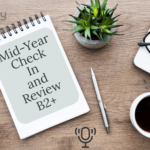The English language is rich with phrasal verbs—those delightful combinations of verbs and prepositions or adverbs that add colour and nuance to our conversations. When it comes to discussing the weather, a quintessentially British topic, phrasal verbs come in particularly handy. Below, we’ll explore some common phrasal verbs related to the weather, providing examples to help you use them with ease.
- Clear Up
Meaning: To become brighter or sunnier.
Example: "It’s been raining all morning, but it looks like it’s starting to clear up now."
This phrasal verb is perfect for describing the transition from cloudy or rainy weather to sunshine. It captures that hopeful moment when the sky begins to brighten, and we anticipate better weather ahead.
- Cloud Over
Meaning: To become cloudy.
Example: "We were enjoying a sunny day at the beach, but then it suddenly started to cloud over."
Use this phrasal verb when the sky fills with clouds, often hinting at impending rain or a change in weather.
- Cool Down
Meaning: To become cooler.
Example: "It was scorching hot in the afternoon, but it’s starting to cool down now that the sun is setting."
This phrase is useful for describing the drop in temperature, especially after a particularly warm period.
- Warm Up
Meaning: To become warmer.
Example: "It’s quite chilly this morning, but it should warm up by midday."
The opposite of cool down, this phrasal verb signals a rise in temperature, often welcome during the colder months.
- Dry Up
Meaning: To become dry or stop being wet.
Example: "The rain has finally stopped, and the streets are starting to dry up."
This is particularly useful after a downpour when the ground begins to lose its wetness.
- Blow Over
Meaning: To pass without causing serious impact.
Example: "The storm was intense, but it blew over quickly, and we were able to go outside again."
This phrasal verb is often used metaphorically as well, to indicate that a problem or conflict has passed.
- Pour Down
Meaning: To rain heavily.
Example: "We wanted to go for a walk, but it started to pour down, so we stayed inside."
This vividly describes a heavy, relentless rain, typical of British weather.
- Blow In
Meaning: To arrive suddenly.
Example: "A cold front blew in from the north, bringing with it snow and ice."
This phrase can describe weather changes that arrive abruptly and often dramatically.
- Fog Up
Meaning: To become covered with fog or mist.
Example: "The windows started to fog up, so we couldn’t see outside."
Useful for those moments when visibility drops due to fog or mist, both outdoors and indoors (e.g., fogged-up glasses or windows).
- Rain Off
Meaning: To cancel an event because of rain.
Example: "The cricket match was rained off, so we went to the pub instead."
A very British experience indeed—plans thwarted by the unpredictable weather!
Weather-related phrasal verbs not only help us describe the atmospheric conditions but also enrich our communication with vivid imagery and precision. Whether you’re chatting about the sudden downpour that ruined your picnic or the welcome sunshine after days of gloom, these phrasal verbs will ensure your conversation is both engaging and accurate. So, next time you find yourself talking about the weather (a national pastime in Britain), try slipping in a few of these phrases and watch your English skills brighten up!
Don’t forget to download the PDF worksheet of this post here!



